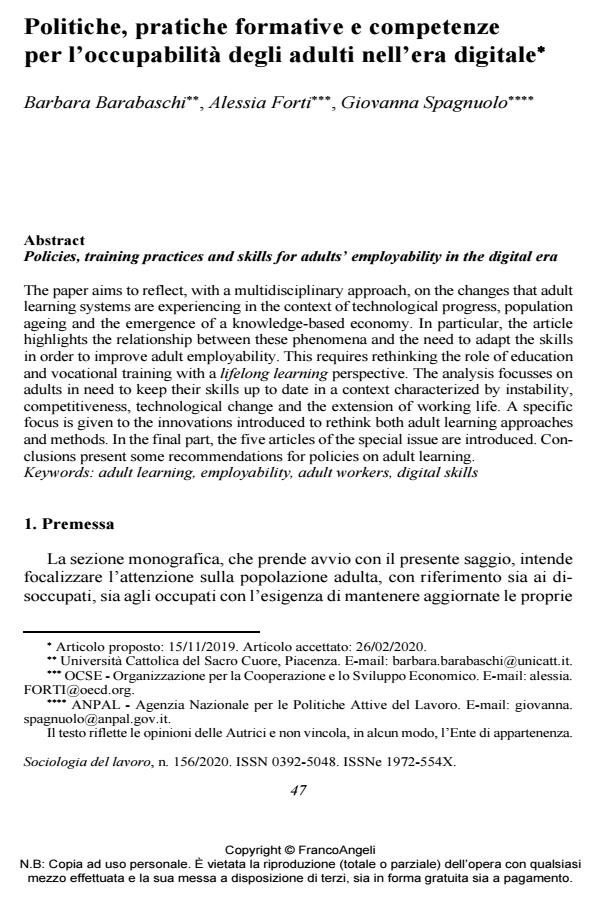Policies, training practices and skills for adults’ employability in the digital era
Journal title SOCIOLOGIA DEL LAVORO
Author/s Barbara Barabaschi, Alessia Forti, Giovanna Spagnuolo
Publishing Year 2020 Issue 2020/156
Language Italian Pages 26 P. 47-72 File size 270 KB
DOI 10.3280/SL2020-156003
DOI is like a bar code for intellectual property: to have more infomation
click here
Below, you can see the article first page
If you want to buy this article in PDF format, you can do it, following the instructions to buy download credits

FrancoAngeli is member of Publishers International Linking Association, Inc (PILA), a not-for-profit association which run the CrossRef service enabling links to and from online scholarly content.
The paper aims to reflect, with a multidisciplinary approach, on the changes that adult learning systems are experiencing in the context of technological progress, population ageing and the emergence of a knowledge-based economy. In particu-lar, the article highlights the relationship between these phenomena and the need to adapt the skills in order to improve adult employability. This requires rethinking the role of education and vocational training with a lifelong learning perspective. The analysis focusses on adults in need to keep their skills up to date in a context characterized by instability, competitiveness, technological change and the exten-sion of working life. A specific focus is given to the innovations introduced to re-think both adult learning approaches and methods. In the final part, the five arti-cles of the special issue are introduced. Conclusions present some recommenda-tions for policies on adult learning.
Keywords: Adult learning, employability, adult workers, digital skills
Barbara Barabaschi, Alessia Forti, Giovanna Spagnuolo, Politiche, pratiche formative e competenze per l’occupabilità degli adulti nell’era digitale in "SOCIOLOGIA DEL LAVORO " 156/2020, pp 47-72, DOI: 10.3280/SL2020-156003